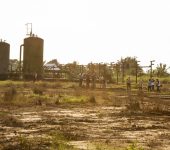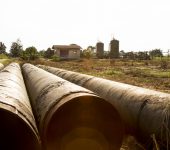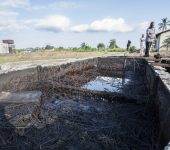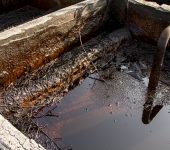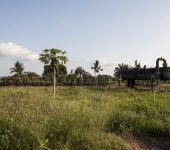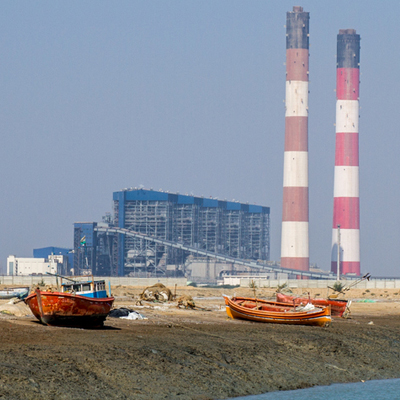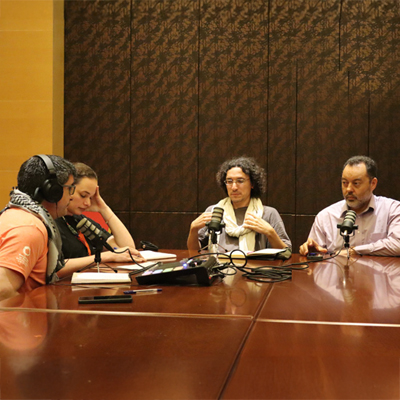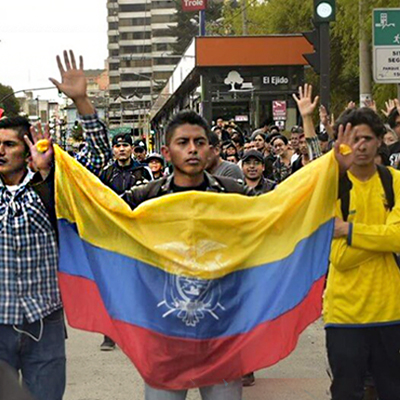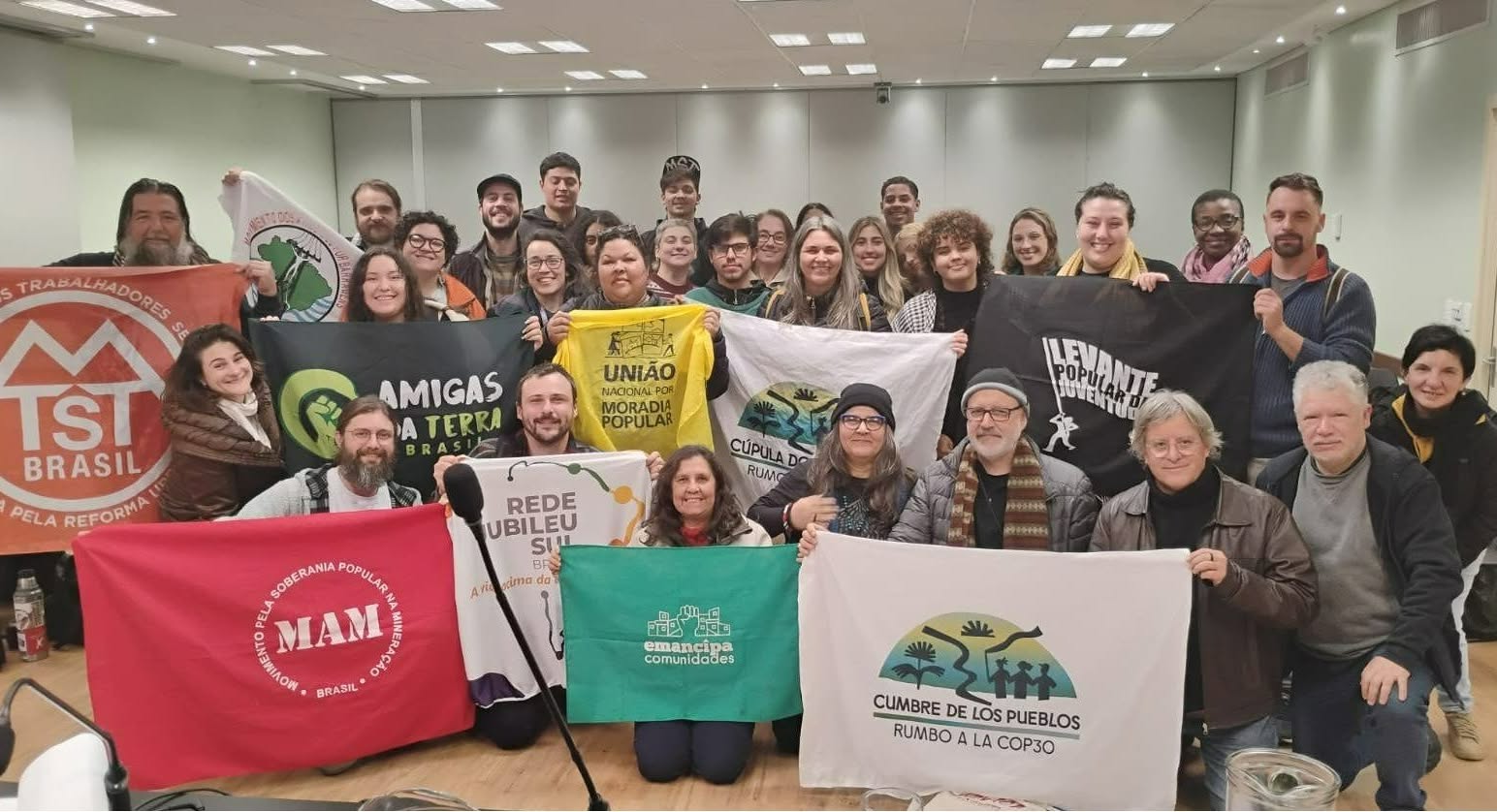Friends of the Earth wins historic ruling against Shell in Nigeria
Four Nigerian farmers launched the case against the company 13 years ago. Two of them didn’t survive to see the verdict.
 Niger Delta, 2019. Photos: Amelia Collins/Friends of the Earth International
Niger Delta, 2019. Photos: Amelia Collins/Friends of the Earth International
On 29 January 2021, after 13 years of legal proceedings, the Dutch court ruled in favour of four farmers who, with the support of Friends of the Earth Netherlands, denounced Shell for oil spills in the Niger Delta between 2004 and 2007.
“My first impression is that of joy and happiness. When you struggle and you see the fruit of your labor come to materialisation you can’t help but be happy about it.”
“On the other side, I feel terribly bad, because I know that there are three persons who have been very active in this case, walking with me from the communities, who have come to pass and were unable to see that. Two of the original plaintiffs, Chief Barizaa Tete Dooh, the father of Eric Barizaa from the Goi community and Mr. Alali Efanga from Oruma community, original claimant in this case, both of them died in the course of this litigation,” said lawyer Chima Williams, Executive Director of Friends of the Earth Nigeria (Environmental Rights Action). Williams worked with the claimants in the beginning of this trial.
“Finally, there is some justice for the Nigerian people suffering the consequences of Shell’s oil. It is a bittersweet victory, since two of the plaintiffs, including my father, did not live to see the end of this trial. But this verdict brings hope for the future of the people in the Niger Delta,” stated Eric Dooh, one of the four Nigerian claimants.
In a ruling deemed “historic” by the international environmental federation, the Court of Appeals in The Hague determined that Shell’s subsidiary in Nigeria must offer reparations to the farmers in order to compensate for the loss of income caused by the contamination of lands and waterways in the South-East region of Nigeria.
The type of compensation they will receive is still unknown. Williams said that they don’t know “whether the reparations will only be in terms of money, whether it will be in terms of ensuring proper clean up, or the provision of facilities in those communities.” This will be determined after Shell decides if they want to appeal the ruling before the Supreme Court or not.
“For the inhabitants of the Niger Delta it is crucial that their land is cleaned up and their lost crops and livelihoods are compensated by the guilty party: Shell,” added Donald Pols, Director of Friends of the Earth Netherlands (Milieudefensie).
Commenting on the reparations, Williams said that “there is no pronouncement by the Court on that and we did not ask for any compensation terms yet because of the jurisprudential nature of the Court in The Hague, where compensation will only be calculated after the Court has made the pronouncement for the payment of compensation. For now, we do not know what the content of that compensation will be.”
Background
The case, first brought against Shell in 2008 by four Nigerian farmers together with Friends of the Earth Netherlands, is the first to consider a Dutch company liable for the actions of its foreign subsidiary.
A lower court in the Netherlands had already decided in 2013 that Shell had to pay compensation for a leak, but ruled that the parent company in the Netherlands could not be held liable in a Dutch court for the actions of its Nigerian subsidiary. Both parties appealed that year. The claimants wanted to hold Shell HQ accountable for the spills, while Shell argued that neither the parent company nor the subsidiary were responsible because the leaks had been the result of local “sabotage” and not poor maintenance. Finally, the Court of Appeals said that Shell had not proven “beyond all reasonable doubt” that the leaks affecting the Goi people were the result of sabotage.
Oil on our hands: impacts
Friends of the Earth Europe reported that “every year, 16,000 babies die as a result of the pollution, and life expectancy in the Delta is ten years less than in the rest of Nigeria.”
This historic ruling could pave the way for more cases against the Anglo-Dutch energy company, such as the one currently taking place in The Hague, which accuses Shell of being one of the main culprits of the global climate crisis.
“These judgments can urge other communities all over the world where destruction is happening to also see this judgment as their own, and begin to approach their governments and companies to do the right thing,” said Chima Williams, Executive Director of Friends of the Earth Nigeria.
Shell Nigeria, in particular, was held liable for oil contamination in three places in the Niger Delta, but according to the ruling, parent company Royal Dutch Shell also breached its duty of care. For this, the Court demanded Shell to install leak detection systems in the pipelines in order to prevent future spills.
The ruling sets a precedent to hold transnational companies liable for the violation of peoples’ collective rights, since their parent companies are usually acquitted of any responsibility or guilt for socio-environmental crimes, although transnational corporations can still sue states in arbitration courts.
Williams considered that this ruling could give new impetus to the UN negotiations for a Binding Treaty on transnational corporations and human rights: “If we have a binding treaty at the UN level, we’ll take care of countries where there are weak institutions, to compel the corporations to behave in those weak countries as they behave in the strong countries, knowing that by the provisions of the Binding Treaty, they can be held liable at certain levels. The Treaty will help cases like this move easier and faster.”
- Niger Delta, 2019. Photos: Amelia Collins/Friends of the Earth International



